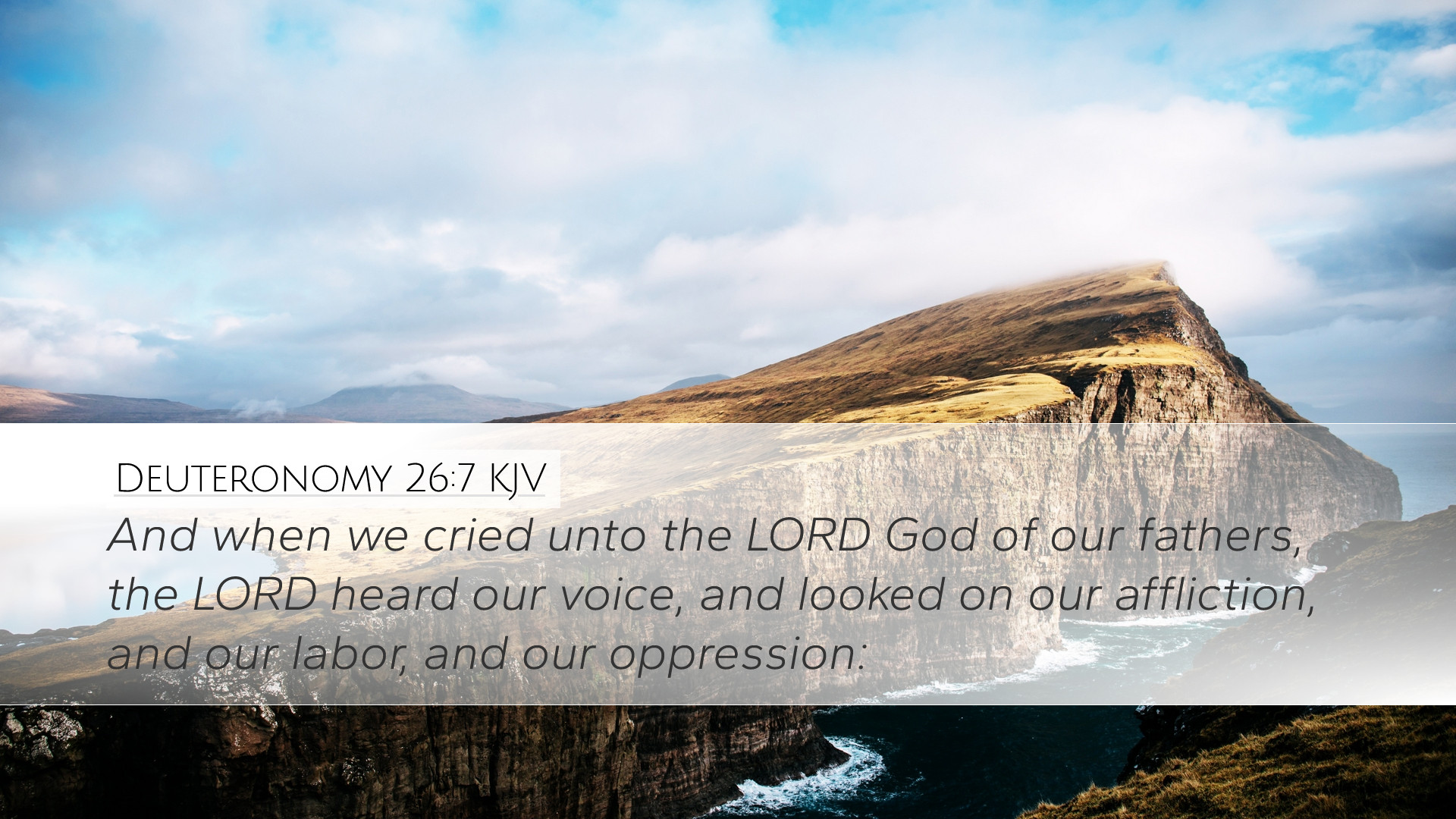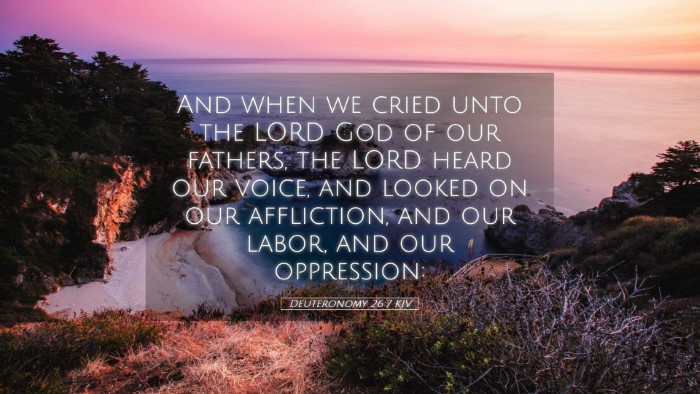Commentary on Deuteronomy 26:7
Verse: "And when we cried unto the Lord God of our fathers, the Lord heard our voice, and looked on our affliction, and our labor, and our oppression."
Introduction
The verse from Deuteronomy 26:7 encapsulates a profound moment in the history of Israel, where the collective experience of suffering and the recognition of divine intervention converge. This commentary will explore the theological implications, historical context, and practical applications of this verse, drawing insights from public domain commentaries by Matthew Henry, Albert Barnes, and Adam Clarke.
Historical Context
This verse falls within the broader context of Moses' exhortation to the Israelites as they prepare to enter the Promised Land. It serves as a reminder of their past hardships in Egypt and their dependence on God. The invocation of history is crucial, as it underscores the covenantal relationship between God and His people.
- Israel's Oppression: The Israelites were subjected to harsh labor and oppression in Egypt. Recognizing their plight, they turned to God for deliverance.
- Covenantal Promise: Deuteronomy is fundamentally a reiteration of the covenant made with the ancestors—Abraham, Isaac, and Jacob—emphasizing God's faithfulness to His promises despite Israel's struggles.
- The Nature of Prayer: The act of crying out to God illustrates a fundamental aspect of prayer, emphasizing desperation and urgency in seeking divine assistance.
Theological Insights
The verse invites us to consider several theological themes that resonate throughout Scripture:
- The Faithfulness of God: God’s hearing of Israel’s cry reflects His unwavering commitment to His people. Matthew Henry points out that God's willingness to listen is not without condition, as it requires faith and sincerity from the supplicant.
- The Nature of Divine Affection: The phrase "looked on our affliction" signifies more than mere observation; it denotes compassionate engagement. Adam Clarke illumines this by noting the personal involvement of God in the suffering of His children.
- The Response to Human Suffering: Albert Barnes highlights that God’s response to affliction is characterized by both attentiveness and action. He does not simply hear; He intervenes, demonstrating His sovereignty over oppression.
Practical Applications
This verse serves as a timeless reminder for contemporary believers who find themselves in distress. Here are several applications derived from the commentary insights:
- Encouragement in Trials: Just as Israel cried out to God, believers today are encouraged to bring their burdens before the Lord, knowing that He listens and cares.
- Awareness of Providence: Reflecting on God’s past deliverance encourages believers to trust in His future faithfulness. The remembrance of God’s acts for Israel can bolster our faith in His plans for our lives.
- Call to Compassion: Understanding God’s concern for the afflicted compels believers to act similarly towards those in distress. Matthew Henry emphasizes the importance of pursuing justice and showing mercy in our communities.
Conclusion
Deuteronomy 26:7 is not merely a historical account but a powerful testament to God’s faithfulness amid human suffering. For pastors and theologians, it provides a basis for preaching on God’s character and His interaction with humanity. For students of the Word, it embodies critical themes of prayer, divine compassion, and the significance of historical memory in shaping faith. In meditating on this verse, may we be inspired to cry out to God in our afflictions and to partake in His redemptive mission in the world.
References from Commentaries
- Matthew Henry’s Commentary - Insightful reflections on divine providence and human responses.
- Albert Barnes’ Notes on the Bible - A thorough examination of God’s attentiveness to human cries.
- Adam Clarke’s Commentary - Emphasizes both the emotional and theological dimensions of the cry for help.


